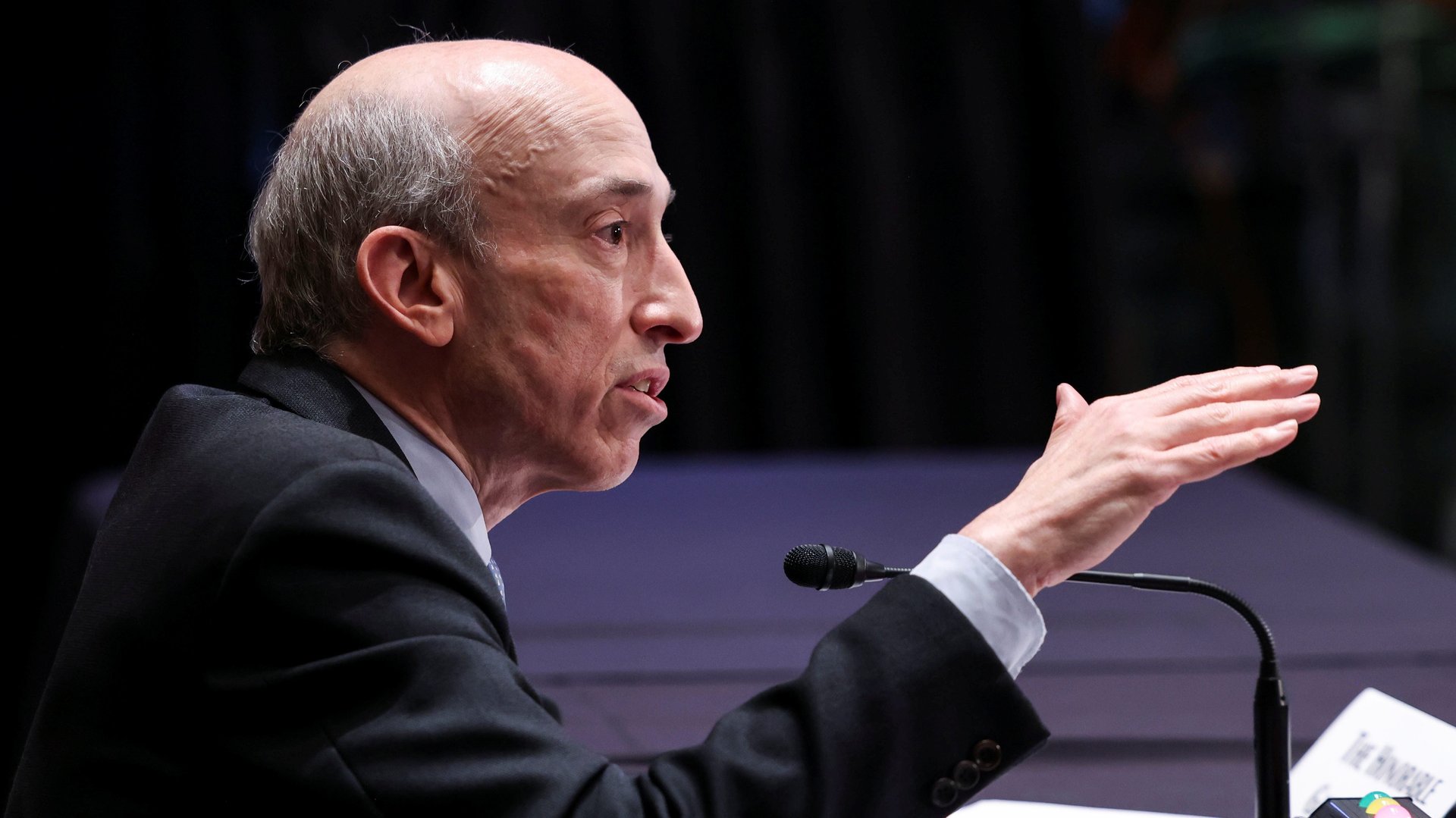Corporate greenwashing is about to get harder
US president Joe Biden’s climate agenda isn’t doing so hot. His big climate spending package has been stalled in Congress for months. The war in Ukraine has the White House begging oil companies to drill more. And on March 15, Biden‘s climate-savvy nominee for top banking regulator at the Federal Reserve dropped out under fire from Republicans.


US president Joe Biden’s climate agenda isn’t doing so hot. His big climate spending package has been stalled in Congress for months. The war in Ukraine has the White House begging oil companies to drill more. And on March 15, Biden‘s climate-savvy nominee for top banking regulator at the Federal Reserve dropped out under fire from Republicans.
Now he gets one more chance: On March 21, the Securities and Exchange Commission is expected to propose new regulations that will require all US public companies to disclose data about their exposure to climate change risks. The rules, which may face legal challenges and likely won’t take effect before the fiscal year 2023, will compel the country’s biggest carbon polluters to own up to their footprint, and reveal how they expect the value of fossil fuel reserves or other carbon-heavy assets to change in the future.
Thousands of companies already disclose these data voluntarily through NGOs like the Carbon Disclosure Project (CDP) or in their standard annual report. But major polluters like Exxon and Chevron are not among them, and inconsistencies between different companies in how they measure and report their climate risk make it hard to tell leaders from laggards.
SEC climate disclosures could raise the cost of capital for carbon-intensive companies
Disclosure by itself won’t force companies to speed up their climate goals. But it will make the reporting more consistent and comprehensive, and make it easier to spot discrepancies between a company’s marketing language around climate and its actual business operations and expectations. The disclosures will also be used by investors and financial institutions to make better-informed judgments about the risk of investing in high-carbon companies, which could make it more expensive for those companies to access finance.
“The SEC’s job is all about risk,” said Elizabeth Small, CDP’s head of North America policy. “Investors care deeply about all risk, and climate is clearly a risk.”
The disclosures will likely ask companies to report how their assets—factories, offices, supply chains, etc.—may be exposed to physical climate impacts like flooding and extreme heat. They will also ask for data about emissions, which is a proxy measure of a company’s exposure to the costs imposed by decarbonization—companies with higher emissions bear greater risk from carbon pricing and other climate policies. Japan, the UK, and the European Union have already rolled out similar rules.
The SEC will require companies to disclose Scope 3 emissions
The new rule is expected to require companies to disclose “Scope 3” emissions that come from a company’s products or supply chain, rather than its direct operations, according to Reuters.
For most companies, Scope 3 is by far the largest share of emissions. Measuring them is a complex and sometimes inexact undertaking, and they will likely be the aspect of the SEC’s rules to be legally challenged by fossil fuel trade groups. But Scope 3 is the only way to accurately gauge a company’s impact on the climate, and how climate policy will impact a company, said Robert Schuwerk, North America director for the think tank Carbon Tracker.
“Without Scope 3, this will be a failed opportunity,” he says.